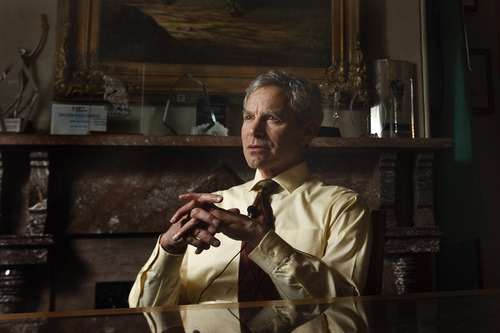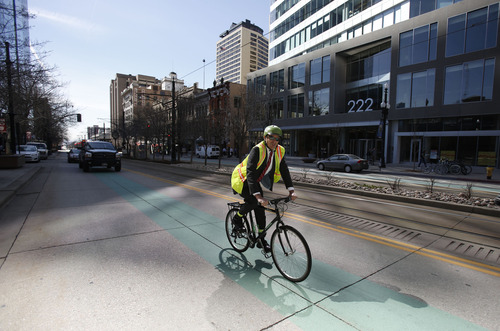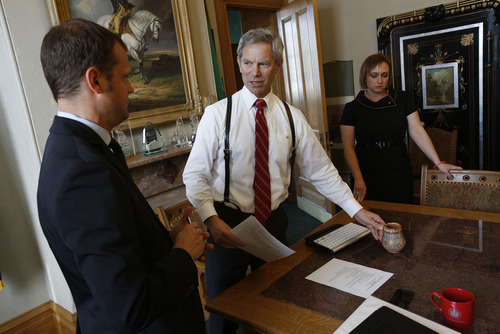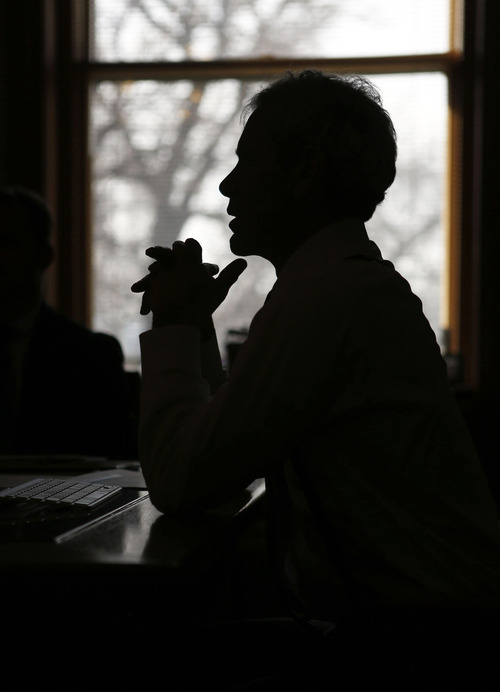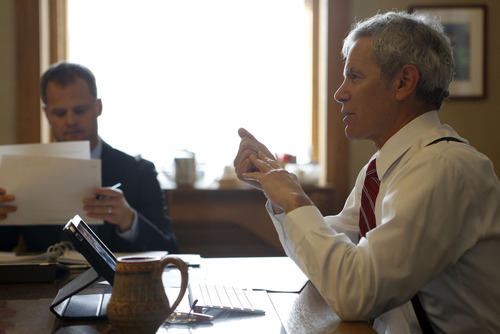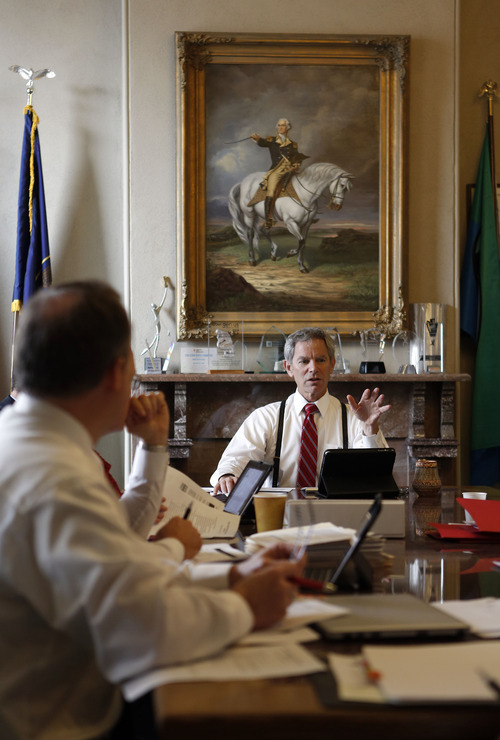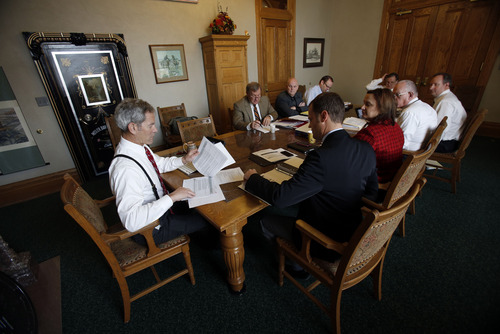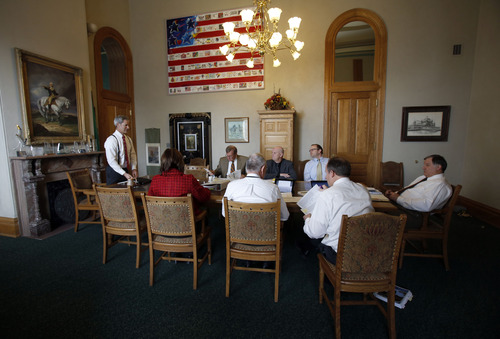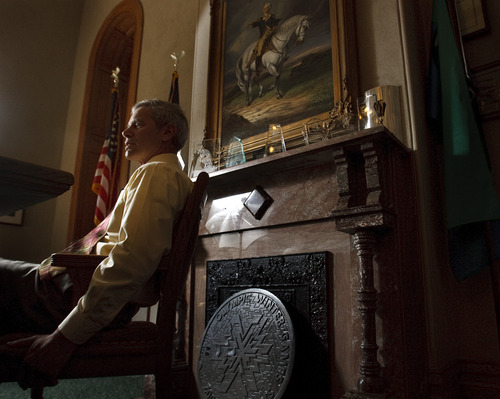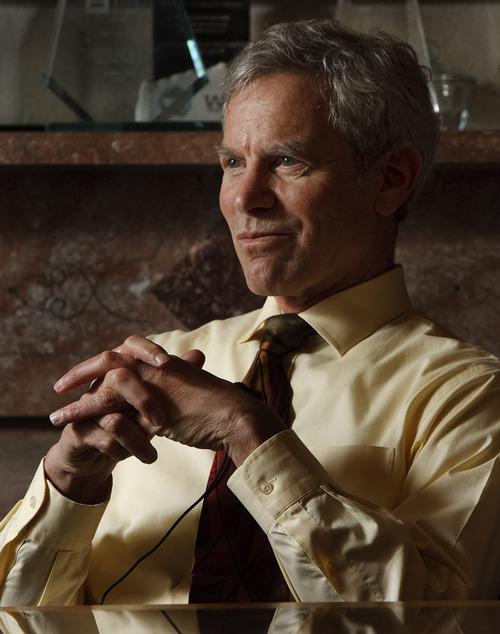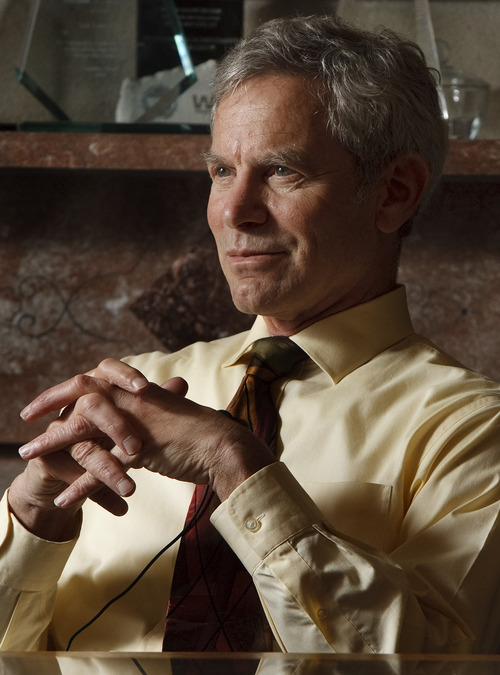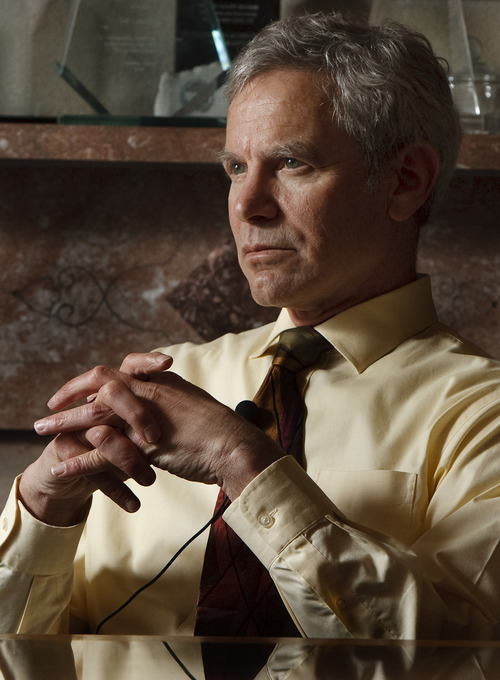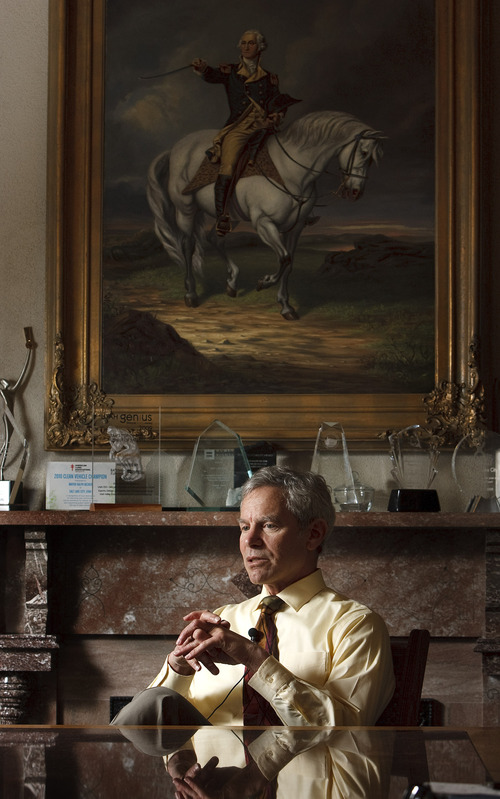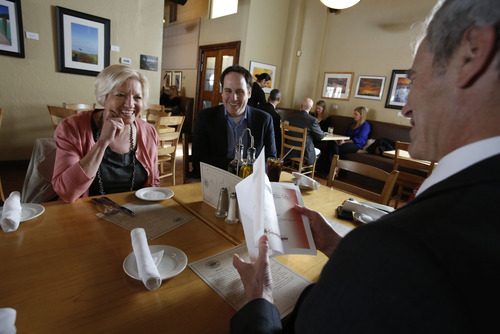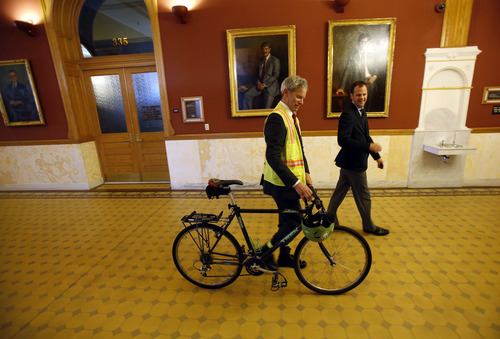This is an archived article that was published on sltrib.com in 2013, and information in the article may be outdated. It is provided only for personal research purposes and may not be reprinted.
He ran as the man with a plan — a blueprint for a "great American city."
And five years into his administration, Salt Lake City Mayor Ralph Becker can point to a passel of significant successes:
An under-construction Public Safety Building; a soon-to-be-built Broadway-style theater; the coming of the Sugar House Streetcar; and a forward-looking transportation master plan that emphasizes mass transit and incorporates bicycles.
But, his critics say, along the way he has evolved from a grass-roots community advocate to a top-down manager who has drifted away from consensus building to a style of governance that has little interest in citizen input, let alone criticism.
And they, too, have a laundry list:
A public rebellion against Becker's original plan to locate the Public Safety Building on Library Square (instead of across the street), his dissolution of the ad hoc Mayor's Bicycle Advisory Committee that sent ripples through another of his once-staunchly supportive groups, and a proposed "road diet" for Sunnyside Avenue that would reduce car lanes but increase bicycle and pedestrian space that the City Council rejected in a dramatic showdown with the mayor.
Loree Hagen, an east-side resident who opposed the Sunnyside "road diet," said she and her neighbors were unaware of the program until it appeared to be a done deal. "It falls under the category of the citizens not being informed," she said.
For his part, the 60-year-old mayor conceded that public outreach is difficult but said he continues to be dedicated to citizen communication as an integral part of his administration's decision-making process.
"Public input is one of the real challenges I, and most people in government, face," Becker said. "I want to reach out to the public early [on various topics] and get their impressions early."
In contrast to the flamboyant Deedee Corradini, who was mayor from 1992 to 2000, and the outspoken Rocky Anderson, who served from 2000 to 2008, Becker appears as a low-keyed wonk.
A Washington, D.C., native, Becker holds planning and law degrees from the University of Utah — training he sought specifically for a career in public service.
After fighting through a crowded field to win the mayor's seat in 2007, Becker breezed to a second term in the 2011 election. Any talk of a third term, he said recently, will have to wait at least two years.
—
A man of the people? • His 2011 campaign website heralded the incumbent as laying the groundwork for "a great American city" with emphasis on livability, environment, transportation, commerce and the arts.
But some of the mayor's early supporters have gone lukewarm, while other critics say he has abandoned his pledge to bring residents and community groups into decision-making.
Polly Hart, who was a member of the bicycle committee and also is a dog-park advocate, said Becker has systematically reduced citizen outreach across the board. The mayor is "streamlining" city government, she said, and that means significantly less public input.
City Councilman Carlton Christensen disagrees. In his 16th year on the council, Christensen has served through the administrations of both Corradini and Anderson.
"I would say Ralph is far more collaborative [than his predecessors] in trying to reach out," Christensen said.
Among other things, Becker rolled out a transparency and open government initiative and also launched "Open City Hall," which seeks public input on the city's website, slcgov.com.
After five years, it would be unusual for a mayor not to have bruised some feelings "when making tough decisions to move us forward," Christensen added.
Christensen conceded, however, that some on Becker's staff seem to err on the side of efficiency rather than public process. "I do sense an increasing unwillingness to compromise. I'm getting a little discouraged with the lack of middle ground."
While Becker's policies may be felt, he is not always seen. He's not a spotlight-seeker and last year he was on the road 93 days in his capacity as mayor.
He delegates a lot of authority to his top managers, observed Council Chairman Kyle LaMalfa. Those point people, as talented as they may be, may not be as interested in collaboration as the mayor is.
"The Becker administration is filled with the smartest people in Utah on urban issues," LaMalfa said. "As such, they may be ahead of the public and council in terms of their aggressive approach moving Salt Lake City forward. And they may be doing it without bringing us along for the ride."
Councilman Luke Garrott said that while the administration may seek public input, that information isn't always visible in the result.
"Ralph is not an autocrat. He is open to people's participation, and he wants them to know the city wants to hear from them," Garrott said. "But that participation is not necessarily seen in [the result of] decision-making."
—
"Sometimes it's messy" • The mayor contends his approach to governance has not changed significantly.
The outcry over the Sunnyside Avenue "road diet" was spawned, Becker said, by residents' lack of trust that the proposal was only a trial.
The city's official transportation policy, dubbed "Complete Streets," calls for roadways that incorporate bike lanes and sidewalks and seeks to "calm" traffic.
But many residents and commuters feared that a reduction in auto lanes on Sunnyside Avenue would slow commute times and push traffic into nearby neighborhoods. Becker was furious a year ago when a majority of the City Council said it would not fund the program.
Today, the boulevard is crumbling and some fear it's payback from the administration. But the mayor insists modifications are coming to Sunnyside, although specifics are unclear.
"I won't go back on our Complete Streets policy," Becker said in a recent interview. "As soon as we can get it worked out, that street will be rebuilt as a 'Complete Street.' "
In some instances, the Becker administration has appeared hypersensitive to public demands and criticism. The mayor, however, maintains he's not averse to differences of opinion — he just insists on civility.
The administration's reaction to the boisterous quality of the long-standing Mayor's Bicycle Advisory Committee was to dissolve it last year, citing a lack of decorum. And after a heated meeting with Millcreek FIDOS — advocates of off-leash dog-parks — members of the organization say they have gotten the cold shoulder from the mayor.
"I fully accept that when you're in a job like this and moving things forward you are going to make decisions that don't make everyone happy," Becker said. "[But] to me, civility is the way we should treat and communicate with each other in the city."
In the case of Millcreek FIDOS, the mayor said his last meeting with the group, after he significantly reduced the off-leash area at Parleys Historic Nature Park in 2011, was rife with name-calling.
"With FIDOS, it got completely out of hand," Becker said. "I would meet with them again, but I don't want a meeting that is so volatile we can't have a discussion."
The dissolution of the Mayor's Bicycle Advisory Committee was more complicated, Becker said. The tenor of the meetings had become rude, with personal insults flung at city officials, he said. Further, the mayor said it doesn't make sense to have a bicycle committee functioning outside of city government. As such, a new committee has been created within the Transportation Department.
"I think exceptionally highly of them," he said of the now-dissolved advisory committee. "They have done more for cycling than anyone in our community.
"I didn't want to get rid of a cycling committee. I wanted to reshape it."
As for the Public Safety Building, moving it a block east of Library Square — where it is now under construction — was always an option, Becker said. The result is a success because of what he described as a lively debate, rather than an insurrection.
"I don't see any inconsistency between [public] process and getting things done," he said. "Sometimes it's messy and there is controversy around it. To me, that's just part of it."


